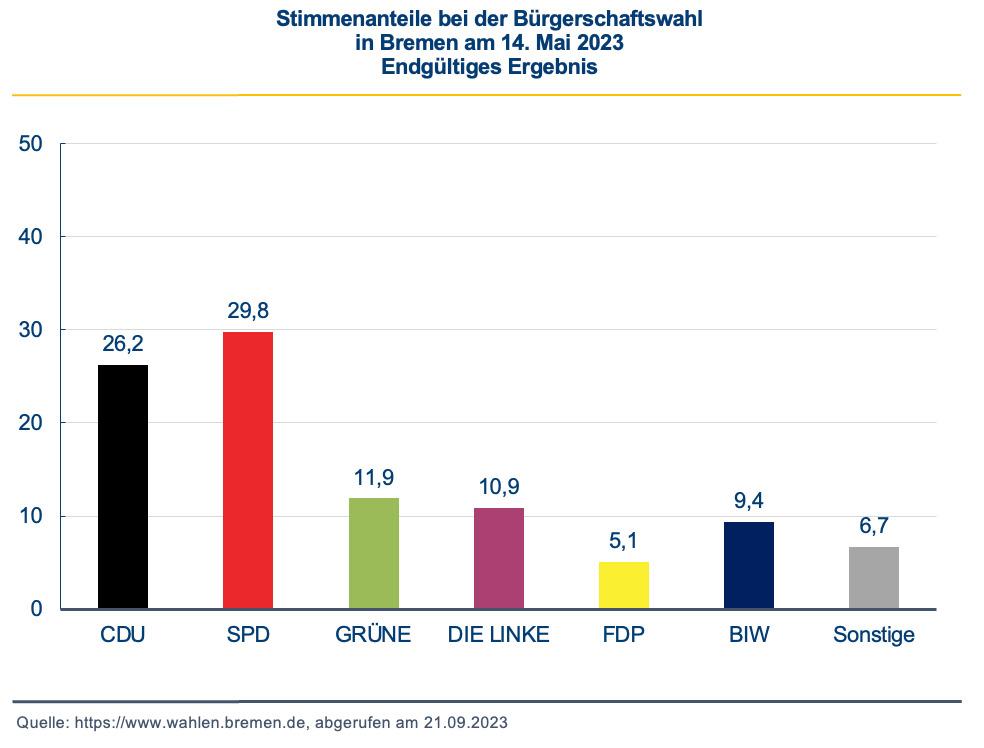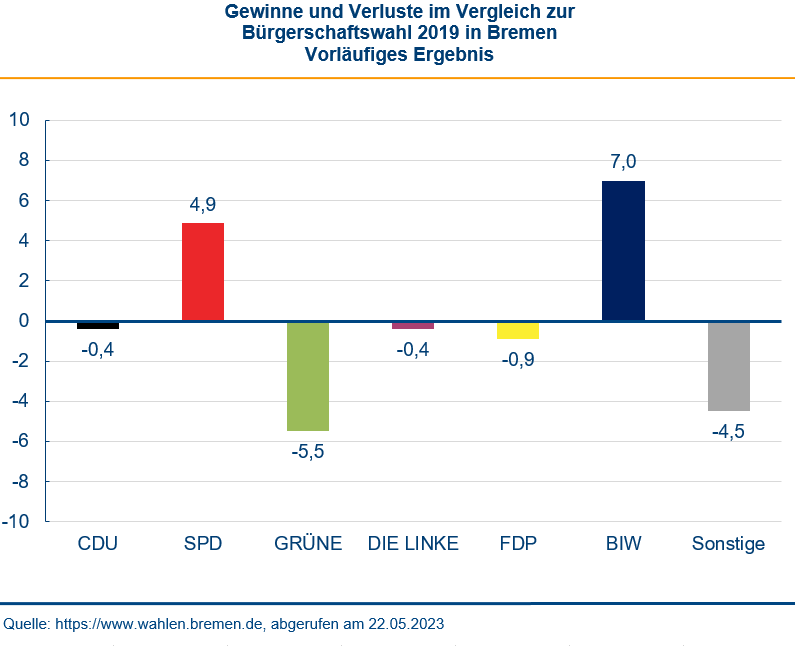It is not the top politics from Berlin, but the issues and people on the ground that are decisive for the voting decisions in the election for the Bremen parliament. The SPD benefits from the popularity of the incumbent Andreas Bovenschulte and achieves 29.8 per cent. The SPD improves in the competences attributed to it, but cannot make up for the sharp decline in 2019.
The CDU almost repeats its good election result from 2019 with 26.2 per cent, but could not benefit even more from the dissatisfaction with the Senate. The Greens have to accept losses and come in at 11.9 per cent. Their policies and their top candidate Maike Schaefer are polarising. The Left Party, traditionally strong in Bremen, confirms its electoral success of 2019 with 10.9 per cent. It benefits from the reputation of its top candidate Kristina Vogt.
Despite slight losses, the FDP succeeds in entering Bremen's parliament with 5.1 per cent. With significant gains, the BIW (Voters' Association: Citizens in Anger) are also represented with 9.4 per cent. They benefit from the non-admission of the AfD.
The elections to the Bremen Parliament are special. Elections are held in two separate electoral areas, Bremen and Bremerhaven, in each of which the AfD was not admitted in this election due to invalid voting documents. The existing five-vote electoral law leads to a more elaborate counting process that takes significantly longer than in other state elections. This analysis is an updated version and discusses the preliminary result based on a full count of all votes.
You can read the election analysis for the state election in Bremen here.
All graphs and tables on which the election analysis is based can be found in the table appendix.
The full-length publication is only available in German.








